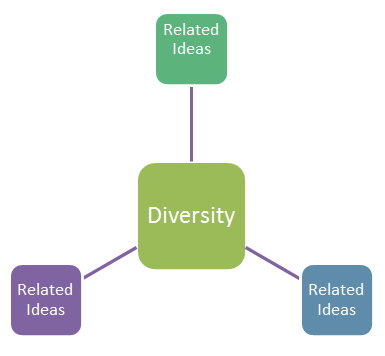Hello everyone! As you already know, it’s exam time.
Now’s the time to gather up all the material you’ve acquired over the past few months and put it to good use.
How do you do that?
Over my years of study I’ve realized that it is far too easy to procrastinate when it comes to your academics if you aren’t organized, motivated and determined.
Get Organized:
Have a plan!
Laying all of your notes out in front of you is going to overwhelm you. You’ll end up spending your time fidgeting with sheets of paper instead of studying. There isn’t one right way to study. You may need to experiment a bit before you discover what works best for you. Below I will provide some ideas.
The Winter term lasted about 12 weeks and you want to stretch your studying over 7 days. You may want to aim for trying to study two weeks of material each day and have the last day reserved for review to go over all the notes that you’ve made. If you've struggled with some of the material you've gone over from previous study sessions, you may want to schedule more days for an overall review.

How you break down your studying depends on your schedule. You may choose to only look over one week a day, or maybe you have more time. You’ll have to factor in all the other responsibilities that you have in order to make a schedule that works best for you.
 For Example: When looking over your syllabus you noticed that that there were classes dedicated to diversity. So, diversity would be your main idea and you would connect other ideas you learned from your lectures and from your course readings.
For Example: When looking over your syllabus you noticed that that there were classes dedicated to diversity. So, diversity would be your main idea and you would connect other ideas you learned from your lectures and from your course readings.
Get Motivated:
 First and foremost, if you want to be successful with your studying and in your exams, you have to be motivated. Focusing on your studies requires that you position your academics as a priority and goal you’re striving to achieve.
First and foremost, if you want to be successful with your studying and in your exams, you have to be motivated. Focusing on your studies requires that you position your academics as a priority and goal you’re striving to achieve.
Motivation can come from anywhere. For instance, you can think about the reason you chose to go back to school. Did you do it for yourself because you have a passion for learning? Was it to assist with a career change? Was it a personal life goal?
You can also think about something valuable you learned from the course that you’re studying for. Was there a topic covered that you’d like to learn more about? Focusing on the positive experiences in a course can help fuel your drive to put forth your greatest effort to do well on your exam.
If you’re still struggling to find something to stir your spirit, motivational quotes always put me in a good mood. Take a few minutes to browse through a few of them on sites like BrainyQuote or Good Reads to shift your attitude.
Be Dedicated:
 Don’t just say you’re going to study, dedicate a block of time to do it. It’s a good idea to section off some time during your day that is solely focused on reviewing your course material. If you start your review early enough, this review period may only need to be half-an-hour to an hour. If you leave your studying to the last minute, you’re going to have to dedicate more time to your review if you want to be successful.
Don’t just say you’re going to study, dedicate a block of time to do it. It’s a good idea to section off some time during your day that is solely focused on reviewing your course material. If you start your review early enough, this review period may only need to be half-an-hour to an hour. If you leave your studying to the last minute, you’re going to have to dedicate more time to your review if you want to be successful.
You may have to sacrifice some social events and leisure activities to complete your studies, but remember that once exams are done, you’ll have the summer to catch up on the things that you missed.
Strive for excellence, not perfection. Do the best that you can do. You can compare study methods with your peers and listen to them if they have suggestions, but remember that you have your own strengths and weaknesses. The sooner you learn what works and what doesn’t work for you, the more improvement you’ll see with your academics.

